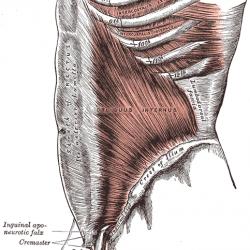A Singapore Dermatologist's Guide To Acne Treatment
Many people struggle with acne. As acne is easy to mistake as other skin conditions, it is essential to diagnose acne in many instances. During diagnosis, your dermatologist will examine your skin to determine the type of acne and its grade from mild acne at grade 1 to severe acne at grade 4.
An experienced acne dermatologist in Singapore, Dr. Liew Hui Min, is able to accurately diagnose your skin condition and provide a suitable treatment plan.
When to visit a dermatologist
With recent advancements in the medical field, there is now a wide range of effective treatments for acne of different severities.
Mild acne can be treated with over-the-counter products. Mild acne can be characterized by a few blemishes, whiteheads, blackheads, and pimples. Products containing salicylic acid or benzoyl peroxide can be effective in clearing such acne. As no product can clear acne overnight, it can take up to eight weeks for one to notice results.
However when you have severe acne, products purchased without a prescription are unlikely to be effective. It is essential to see a dermatologist if you want your acne to clear.
Dermatologists offer various types of treatment for acne, depending on your condition. The following are some forms of treatment.
Topical Treatment
Topical treatment refers to the treatment applied to the skin. In most cases, dermatologists begin with topical treatment. Topical acne treatments are of various types. Some forms of treatment kill bacteria, while others work on minimizing oil production on the skin.
Topical acne medicine has various components. Some medicines contain retinoids, prescription-strength benzoyl peroxide, salicylic acid, or an antibiotic. Your dermatologist will examine your skin condition to determine the medication most suitable.
Oral Medication
For severe cases, when acne is red and swollen, you may need oral medication that works throughout the body. Acne cysts and nodules usually demand this form of treatment. Your doctor may recommend:
- Antibiotics to help kill bacteria and reduce inflammation.
- Birth control pills and other hormone-regulating medicine useful for women.
- Isotretinoin
Acne treatment procedures
Acne treatment may also involve procedures performed during your visit to the dermatologist's office.
- Laser therapy. Laser therapy and other forms of light therapies reduce acnes bacteria. Your dermatologist will determine whether this treatment will work for you.
- Chemical peels. Albeit there are many chemical peels available, you cannot purchase chemical peels used by dermatologists for acne treatment. Blackheads and papules are treated using chemical peels.
- Acne removal. For a large acne cyst, your dermatologist may perform "drainage and extraction." This procedure finds use when medication is not effective in treating cysts. The procedure reduces pain and scarring. Your dermatologist can also inject the cyst with medication to get rid of it quickly.
Although acne can clear on its own, early treatment is the best way to prevent the formation of permanent scars. Breakouts may reappear after treatment, and this makes it essential to continue treatment. It is important to listen to medical advice and communicate closely with your dermatologist.
More to Read:
Previous Posts:







